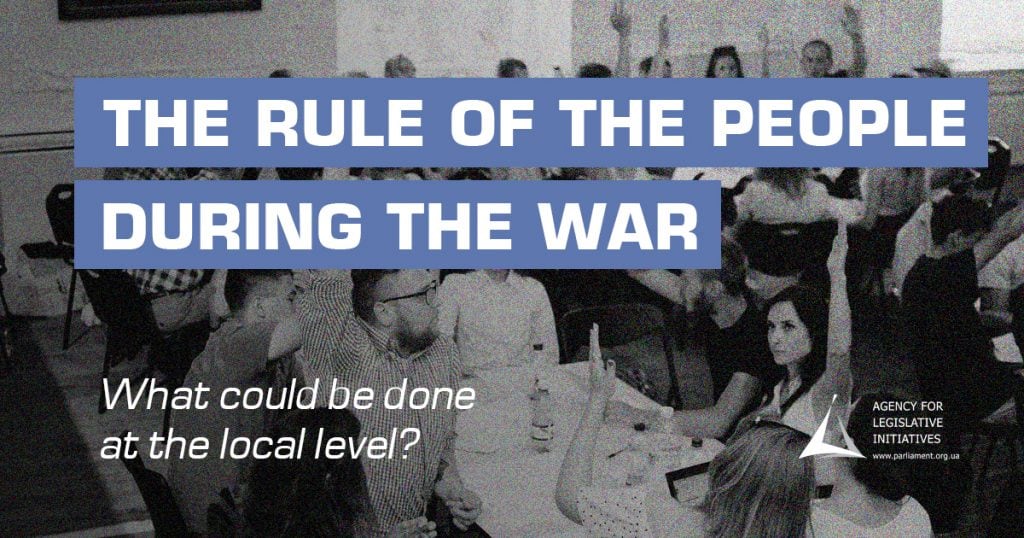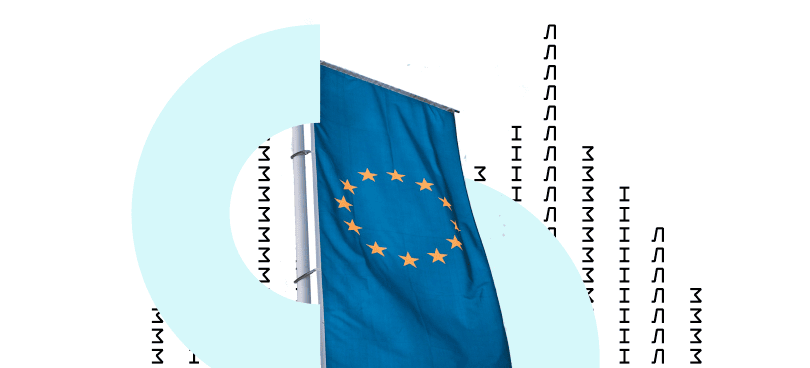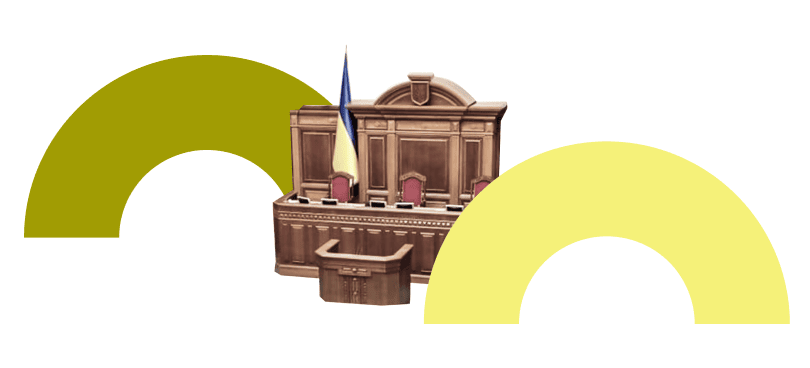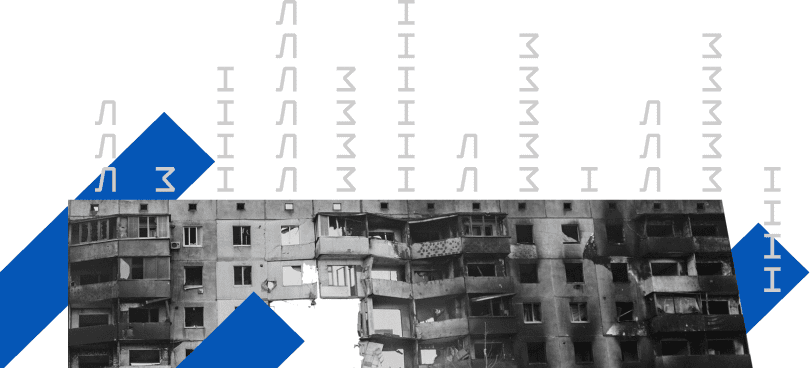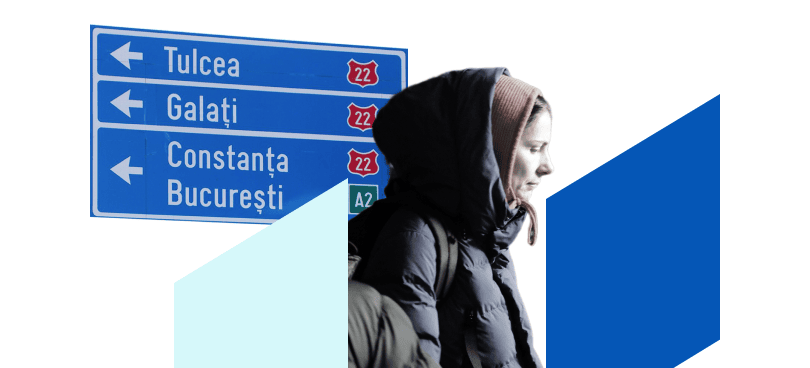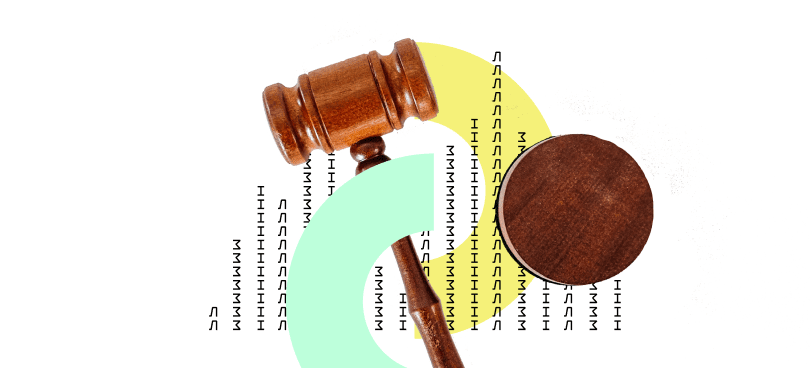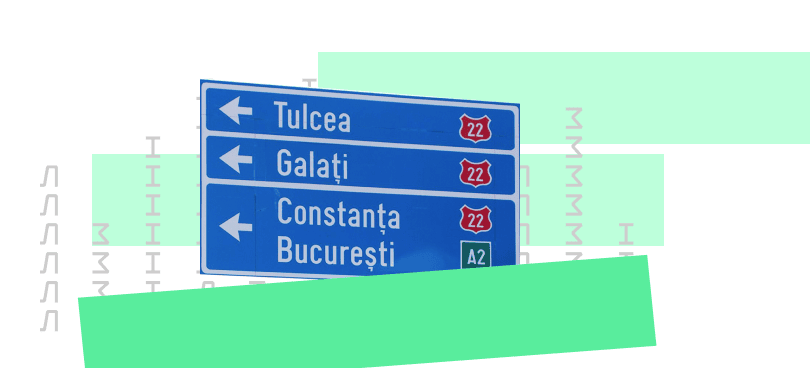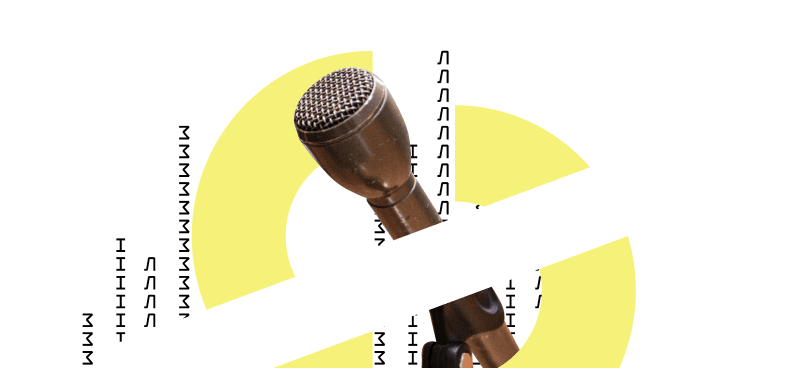The decentralisation reform and the transfer of resources and powers to the local level therewith increased the number of participation tools for residents of communities. The communities have more opportunities for the changes that the residents of the community themselves can initiate – participation budgets, electronic petitions, consultations in the development of draft decisions, public control, and other options to ensure transparency of local processes. These tools have been legislated. But how can the community get involved in addressing local problems? And do war conditions allow doing so?
Russia’s full-scale invasion into Ukraine and the introduction of martial law create some restrictions for citizens – in the context of both forms of public participation and access to public information. This is primarily due to security issues, as the enemy tries to use all possible information (including public one) as weapons against us.
Among other things, during martial law, local self-government bodies or their ‘substitutes’ (i.e., military-civil and military administrations) may refrain from publishing draft decisions. The work of local MPs’ committees and local councils is not announced in advance and can take place behind closed doors. Public electronic registers (especially those for land plots, planning documentation) may be closed to citizens. In addition, some communities have temporarily ceased to hold calls for public budget proposals or delayed participation budget projects (this is regulated by a Cabinet of Ministers of Ukraine’s Resolution, which legitimises free disposal/transfer of local funds for the purpose of counteracting Russian aggression. In fact, budgetary funds that were appropriated for the implementation of local initiatives are reallocated to address military needs). This is due to the peculiarities of the budget process under martial law and limited financial resources.
All of this changes the relations of local self-government bodies and the community, established by the decentralisation reform, and, accordingly, narrows the ability of citizens to influence local authorities. Yet it should be remembered that all the above restrictions are temporary, and citizens are not deprived of the rights to participate in the life of their community. Today, there is no legislative act forbidding that completely.
How are the forms of participation of community residents regulated?
The Ukrainian legal framework does not have a single law regulating the procedures of all forms of public participation. The main forms of local participation of citizens are defined in charters, provisions on communities and the following laws:
- Law of Ukraine on Local Self-Government in Ukraine;
- Law of Ukraine on the Bodies of Self-Organisation of the Population;
- Law of Ukraine on Citizens’ Appeals;
- Law of Ukraine on the Status of Members of Local Councils.
So, the participation of citizens is not limited only by the elections of the head of the community and their deputies, which, by the way, may not be run during martial law (at least as yet). Citizens are also guaranteed the rights to access freely information about local authorities, attend local government meetings, submit electronic petitions, hold public hearings, etc. Which may be used under martial law, and which ones are to be put off – we tell you further.
Local referendum
Local referendum (Article 7) is a form of direct expression of will of community residents. Any issues may be addressed at a local referendum, except for those prohibited by the Constitution (taxes, budget and amnesty) and those belonging to the powers of state, rather than local authorities. For example, a local referendum in the community may address the issue of liquidation or reorganisation of communal educational institutions, approval of the charter of the community or changes thereto, a community development programme, early termination of powers of the head of the community, etc.
Local referendum decisions are binding. But organising and holding it is not easy. This requires an initiative group of citizens, collecting signatures among voters, financial resources for its organisation.
However, nowadays, a referendum may not take place for two reasons. First, there is martial law in Ukraine, which prohibits elections including referendums. Second, the vehicle of local referendum has been mentioned in the national legislation in a piece-meal way across several legislative acts, since in 2012 the fundamental Law on All-Ukrainian and Local Referendums lost its effect. As a result, a legal vacuum developed with regard to the procedural aspects of this form of participation. The Law of Ukraine on Local Self-Government mentions that the procedure for setting and holding a local referendum and the list of issues that may be addressed at it are to be determined by a law on referendums. However, this law is not in place today. Draft law No. 5512 On Local Referendum has been with the Verkhovna Rada since its registration back in 2021 but is yet to be approved.
General meeting of citizens
General meeting of citizens (Article 8) provides for the direct participation of citizens in addressing local issues. For example, this may be a meeting of the inhabitants of the section in a block of flats, street or neighbourhood to discuss the problems of their area, file proposals to local self-government bodies, discuss the council’s draft decisions. At the meeting, citizens may require reports from local self-government bodies and actions to address pressing issues (such as the state of the environment, social services provision to various populations of the community, urban development, etc.). The procedure for holding a general meeting of citizens is determined by the charter of a specific territorial community. Any community resident may initiate a general meeting where there is a need to address an issue or set up house committees (e.g., homeowners associations). If a community resident initiates that meeting, then the notice along with the agenda is sent to the local council, published on the official website and shared in the media.
During martial law, this instrument of participation formally works. The only thing is that there can be difficulties in organising meetings, especially in communities where lots of residents have left for safer regions. The decisions of the general meeting of citizens shall be considered by local self-government bodies. If local authorities decide not to accommodate the decision of the general meeting, they should provide a reasoned response together with a refusal to make the requested decision.
Local initiatives
Local initiatives (Article 9) are the right of members of a territorial community to initiate the council’s consideration of any issue related to local self-government. These can be issues on land relations, social, administrative, educational, healthcare services, etc. For example, initiatives on establishing a municipal centre for rehabilitation of veterans, preventing the build-up of the city, planting trees along the street, developing transport infrastructure, repairing an educational institution, etc. Local initiatives may also relate to the council’s committees – for example, proposals can be made to change the members of a committee or exclude a certain local MP where residents of the community do not trust them. In fact, through local initiatives, community residents can draft decisions – just the way MPs do that – and they must be considered at the council’s session.
During martial law, this participation tool is accessible to community residents, even in a situation where a council meeting is held behind closed doors. The issue of the initiative group is included into the agenda of the meeting in advance, the day of the meeting is then communicated, and it must be discussed by all members of the council with the participation of that group.
Public hearings
Public hearings (Article 13) are the right of a territorial community to hold meetings with the members of the council or officials. This is a kind of public meeting to exchange opinions where citizens can have their say on pressing issues, and representatives of LSGBs can hear the needs of community residents.
For example, before decision-making on building a waste processing plant, the LSGB may organise public hearings to get feedback from the residents. Thus, public hearings are not just a tool to inform the community residents about relevant issues, but it is also meant to involve citizens into solving local problems.
Public hearings are held at least once a year, although in practice, this legislative requirement is not always complied with. All proposals made as a result of public hearings must be considered by local self-government bodies.
During martial law, it can be challenging to organise and hold public hearings. First and foremost, this is because today LSGBs’ representatives address urgent issues related to military needs, IDPs and humanitarian aid. Otherwise, public hearings are held informally or online. Communities use online platforms, such as e-Dem, Google Forms, Diia chatbot. For example, these participation formats were used for renaming the streets in Kalush and Chervonohrad communities.
Consultative surveys of citizens
Consultative surveys of citizens (Article 43) are a form of participation that is used to identify the opinion of residents on the needs and problems of a community. At their plenary sessions, district and regional councils make decisions following the proposal of territorial communities to conduct such a survey. The findings of this survey are taken into account in making respective decisions. For the most part, such a survey involves unambiguous answers – “yes” or “no” – and refers to some specific problems. A consultative survey of citizens is flexible, as it can be conducted for a given house, residential quarter, street – everything depends on the decision of local authorities. This survey takes little time, and its participants have to answer the questions once. There are no restrictions as to the systematic nature of such surveys – they can occur depending on the emergence of requests, e.g., when there are discussions on a particular draft decision of the council on urban development, landscaping, local infrastructure, environmental safety, etc.
Population self-organisation bodies
Population self-organisation bodies (Article 14) are established to address certain issues of local importance. These bodies can be endowed with their own finances, property, powers, and they are established at the initiative of residents of a building, residential quarter, street, neighbourhood.
Notionally, residents of an inhabited locality can directly influence the decisions of the council and monitor their implementation. It is, in fact, a tool of direct democracy. There are many examples of issues that can be resolved through self-organisation of the population. For instance, a residential complex is planned to be built, but its construction was not agreed with local residents who live in the area. In this case, residents can self-organise and establish committees that would prevent illegal construction. Another example is a broken and bumpy road in the area, and a member of the local council does not respond to the problem. Here, too, the establishment of street-based committees facilitates raising the profile of the issue in the media and to the level of LSGBs.
There are other cases where self-organisation bodies can be established. For example, when there is an active part of inhabitants in a neglected residential quarter of the community, they can unite to systematically promote their ideas.
Uniting into population self-organisation bodies has a double advantage – its activity can enhance the work of members of a district council, and it can be resistance where a local MP abuses their powers and spends budget resources on their own needs. The district to which the member of the local council is assigned usually goes beyond a street, house or residential quarter. Therefore, oftentimes the MP may lack resources or time to lobby for a decision in favour of the community or even explore the problem in greater detail. Accordingly, in this case, residential quarter or street-based committees will be effective, and they, in fact, play the role of local MPs by offering solutions to problems. The only thing, of course, is that initiators from population self-organisation bodies may not vote on these decisions in the council.
Creating a population self-organisation body can be particularly effective in the process of recovery of territories, as their activities relate to different areas. Considering that the population self-organisation body, together with local MPs, represents residents of a street, building, residential quarter, etc., their initiative can minimise the risks of abuse and corruption. Another advantage of the functioning of such a body in the process of recovery of territories is the ability to raise funding since the population self-organisation body is funded not only by local budgets but also by voluntary contributions of individuals and other revenues that are not prohibited by law.
Other forms
Appeals of citizens – proposals, statements, and complaints, presented in writing or verbally, and electronic petitions. Appeals may relate to any issue that is of concern for the residents of the community or needs to be immediately resolved. During martial law, this form of participation is widespread as the number of individuals in need of advice on social services, housing recovery, etc. has increased significantly. In some regions, special advisory assistance centres have been established (for example, the City Support Centre for Internally Displaced People is operating in Lviv). Another form of public participation – voters’ instructions to their member of the local council – is specified in the Law on the Status of Members of Local Councils. Voters can make submissions to their local council members at a meeting, in the course of their reports or meetings with them. These instructions can relate to any issues and needs of a constituency or community as a whole (for example, repair of a road, rehabilitation of an educational institution, etc.). Such an instruction must be endorsed by a majority of those present at a meeting (by voting). The local MP must convey the content of the instruction to the local council, and a decision on its implementation is made in line with available resources. This tool allows combining the efforts of the entire community to fulfil the instruction, since participation in the implementation can be taken by both constituency voters and the LSGB.
In lieu of the conclusion
National legislation, martial law and restrictions associated with it do not ban full participation of citizens in local self-government. Moreover, as of today, the Verkhovna Rada has adopted in the first reading the draft Law on Amendments to the Law on Local Self-Government in Ukraine and Other Legislative Acts of Ukraine on Democracy at the Level of Local Self-Government, which improves the procedure for organising the forms of participation. Therefore, even in today’s environment, it is important for local self-government bodies not to reject using community involvement tools that are formally approved in their charters or provisions. Depending on the level of security in, and capabilities of, each region, flexible forms of participation can be used – electronic public consultations, remote conferences, surveys of residents and more. Such participation mechanisms are not only accessible but will also improve the quality of decisions and align them with the needs of different social categories, because the number of IDPs has increased across the regions, as businesses have relocated, the need has arisen to redistribute budgets, attract additional resources, etc. This requires enhanced interaction with the community.
This material was prepared with the financial support of Sweden.

